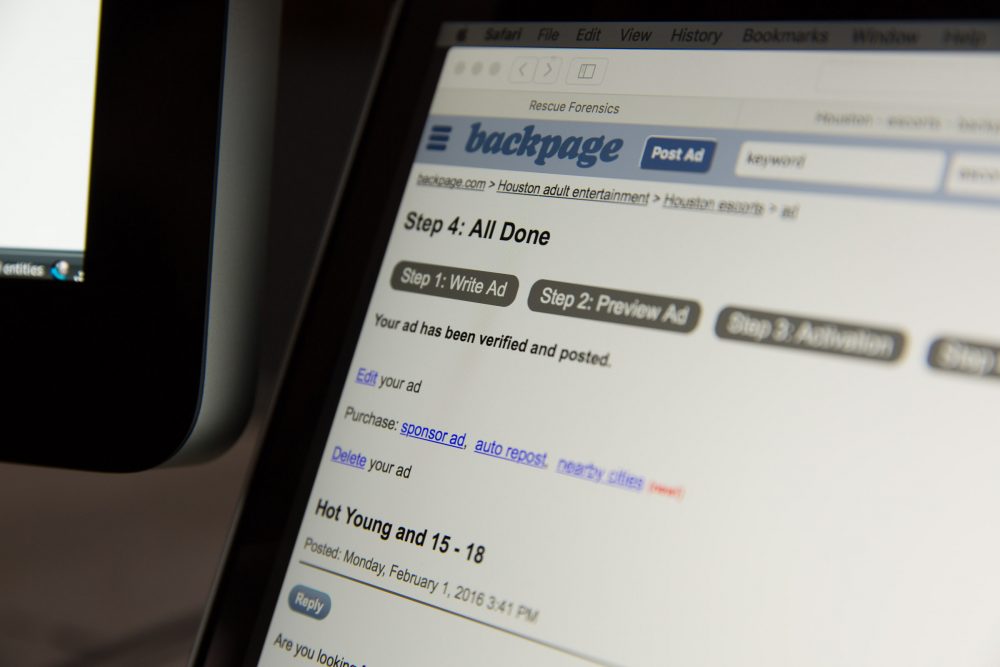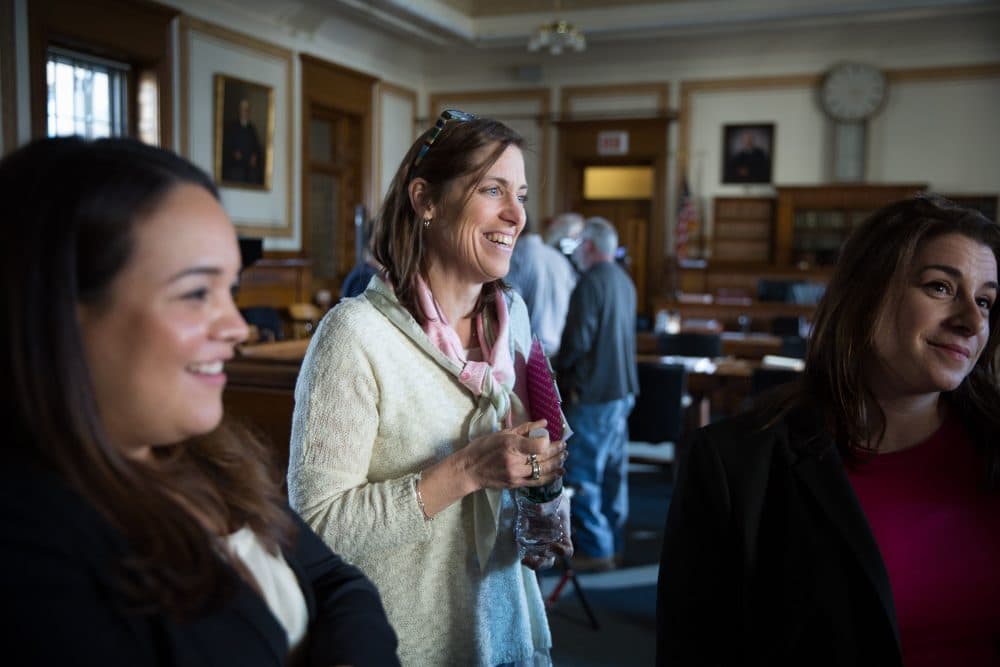Advertisement
A Portrait Of American Avarice, 'I Am Jane Doe' Brings Backpage Controversy To The Screen

For anyone with a young daughter, the testimony by victims of human trafficking and their families in the new documentary "I am Jane Doe" will come as a bone cutter. Others too will be palpably moved and more so, outraged by the willful complicity of Backpage in helping relegate underaged girls into a purgatory of prostitution, drugs and physical abuse.
If you're unfamiliar with Backpage (owned by the revered alternative newspaper company Village Voice Media), it's a service like Craigslist where people exchange goods and services like sofas, cars, housecleaning and sex (disguised as escort services) with great autonomy. That freedom comes as a result of Section 230 of the Communications Decency Act (ironically also known as "Great Internet Sex Panic Act of 1995"), which essentially grants online providers impunity for the content posted on their sites by third parties. That said, illegal sex solicitation — minor or not — has to be reported, but Backpage instituted a policy of circumvention to knowingly sanitize posts so they would not get flagged by enforcement authorities, as noted by a former employee whose voice and identity are disguised in the film.

The film directed by Boston-area resident Mary Mazzio and narrated by Jessica Chastain, goes after its subject in a three pronged manner, of which, the voices of the victims and the families looking to reclaim them registering the most visceral. "There's no handbook to tell you what to do when your daughter's been raped," one reunited parent somberly reflects. The investigative angle — following the money and evolution of Backpage — pulls up ties to Norman Mailer (a co-founder of the "Voice") and Jordan Belfort (aka "The Wolf of Wall Street"). "Doe" also tails several attorneys representing victims in suits against Backpage, including John Montgomery, a former managing partner at Boston-based Ropes & Gray, who describes Backpage's tactics as "a scheme to deceive law enforcement while they increased market share."
"Doe" culminates with a January 2017 sub-committee hearing where the CEO of Backpage, Carl Ferrer, pleads the fifth. It proves to be a more direct response than the 2015 Senate hearing where the subpoenaed Ferrer is a no show, something that an incredulous John McCain remarks he's never seen before in his lengthy public tenure. Developments in the legal pursuit of Backpage are ongoing (including charges brought against Ferrer last October).
At the time of the hearing, Mazzio was wrapping up the film and had to roll back its release date in order to incorporate the footage from Capitol Hill. Mazzio, who came to documentary filmmaking after a successful stint as an attorney and partner with Brown Rudnick in downtown Boston and notching honor as an Olympic rower in '92, clearly has her eye on topics that are both human and political. Her previous effort, "Underwater Dreams," told the story of five high school students, all sons of Mexican immigrants living in the country illegally, who enter an aquatic robot contest and end up going head-to-head with MIT. Made in 2014, "Dreams" was a compelling saga of perseverance then, and now, given recent executive orders, it has grown in political relevance.

"Doe" covers a lot of terrain competently and comprehensively. The faces that leap to the fore are the mother who responds to her daughter's Backpage posting to get her back and Homer King, the former pimp who discusses seduction ("I'll fix all your problems") and "the leash" (narcotics) as tools of the trade. Then there's the poor girl who gets into a car to "help someone" and is whisked away, and Tom Dart, the Cook County, Illinois, sheriff whose relentless efforts against Backpage put him in the crosshairs.
Persisting throughout the film as the facade for Backpage's law-skirting schemes is the ever-elusive Ferrer, appearing in a grinning still but otherwise never caught on camera. More odious however, might be Liz McDougall, the Village Voice Media's attorney who avers that "the problem is the internet" and promises that the Village Voice is actively trying to stop sex trafficking. She appears earnest enough at first, but when juxtaposed with an incredulous parent looking at her daughter in lacy panties on a Backpage post, the depth of her moral fortitude is revealed for the thin gauzy layer it is.
Ultimately "Doe" becomes a portrait of American avarice, the corruption of the First Amendment and a cautionary tale to parents, who after seeing the film are likely to pay more attention to their daughter's online activities and after-school trips to the mall. I already am.
"I am Jane Doe" begins showing on Feb. 10 at AMC Framingham 16 and will be available for streaming on Netflix shortly.